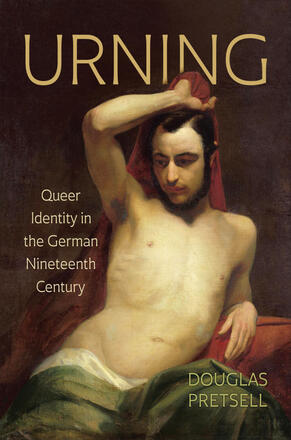
Description
In 1864, the German jurist Karl Heinrich Ulrichs coined the term “urning” as a word for same-sex attracted men. Over the next few years, first anonymously and then publicly, he campaigned against the public persecution of these men. In response, some of his readers took on the urning terminology for themselves and engaged with Ulrichs to negotiate the finer points of their new identities.
In Urning, Douglas Pretsell writes of same-sex attracted men in German-speaking Europe who used the neologism “urning” as a personal identity in the late nineteenth century. This was in the period before other terms such as “homosexual” gained currency. Drawing on letters, memoirs, and psychiatric case studies, the book uses first-hand autobiographical accounts to map out the contours of urning society. Urning further explores individual accounts of some urnings who attempted their own forms of activism to transform the world around them , even though they had no formal organization. As the century drew to a close, the efforts of Ulrichs and his urning followers paved the way for the launch of the world’s first homosexual rights organization. Urning argues that the men who called themselves urnings were self-identified, self-constructed agents of their own destinies.
Reviews
“Pretsell’s Urning is a much-needed addition to the existing scholarship on the beginnings of modern queer history. Thoroughly researched and engaging with that literature with admirable prowess and argumentative confidence, it challenges Foucauldian paradigms and traditional (bourgeois, metronormative) understandings of queer history.”
- Mathias Foit, Fachhochschule des Mittelstands